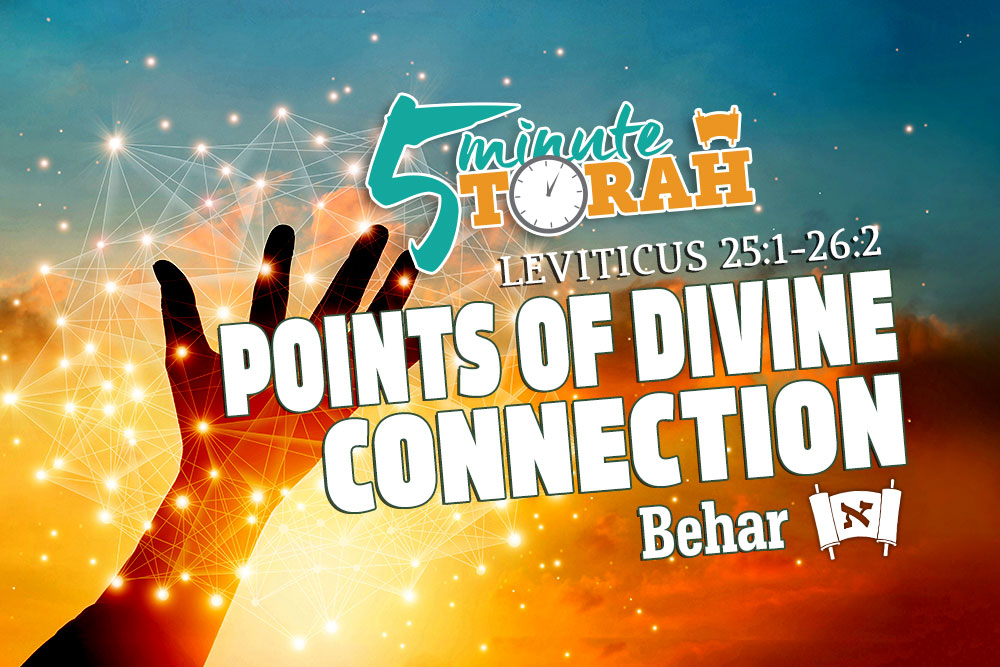Points of Divine Connection
Series:

Parashat Behar (Leviticus 25:1-26:2)
Parashat Behar begins, "The LORD spoke to Moses on Mount Sinai, saying..." We get the name of the parashah from this opening line. The word behar, in Hebrew, means "on the mountain." But why do we need to know this information? Didn't all of the commandments and instructions given by Moses originate at Sinai when he was given the Torah in its entirety? Why hasn't the Torah reiterated this fact prior to our current reading? Why do we need to be reminded of this obvious fact?
Maybe it's because of the commandments that follow. What follows this statement is a series of commandments that don't seem to make any rational sense. For instance, the first commandment is the mitzvah of the shemitah (sabbatical) year. Every seventh year, farmers in the land of Israel are to leave their ground fallow: no planting, no tilling, no watering, no harvesting, etc. It must remain completely uncultivated. Not only that, but whatever crops are produced are considered communal property. Any person or any beast may eat freely from it.
The second set of commands revolves around the Yovel (Jubilee). The Yovel is the fiftieth year, after seven shemitah cycles. The entire year is to be consecrated and dedicated to the return of property to its original owner. In addition, like during the shemitah, we are not to cultivate the land; we may not plant or harvest.
Next, we have various laws pertaining to the sale of property in relationship to the Yovel, including a series of laws for slaves. And last we have several regulations outlining the procedures for redeeming a poor person who has been sold into slavery.
What is the connection between all of these laws and the reminder we had at the very beginning that these laws were given to Moses on Mt. Sinai? The Torah interjects the fact that Moses received these commandments from Sinai to remind us that Hashem's wisdom is far superior to our own, and that human logic will not always lead us to godliness. Man's wisdom is to work for six days and then take a day off to rest so that he can increase his productivity. Hashem's wisdom is that for six days man should work toward the goal of entering into His presence on the seventh day-a time of holy rest, cessation from our own efforts, worship, prayer, Torah study, and fellowship with the Divine. Man's wisdom is that we should "eat, drink and be merry for tomorrow we die." In other words, we should live to indulge ourselves in the pleasures of this world. Hashem's wisdom is that we should eat, drink, and enjoy the delicacies He has provided for us in this world with the single goal of divine worship. We fuel our bodies so that they might better serve our Creator.
These are but a few examples. The point is that when our parashah connects these commandments back to Sinai, we are reminded that everything we do should point back to the Divine. We should not live our lives driven by our animal appetites, but instead by our desire to please our Creator. We should take every opportunity to enjoy His blessings in this world while keeping our focus on Him. Everything we do in life should point us back to Sinai, Yeshua, and our redemption. As we strive to live out the Torah's commandments, we should always remember that the commandments were given "behar," on the mountain, and that by their fulfillment we are not merely following a set of rules, but reattaching ourselves to our Redeemer.








